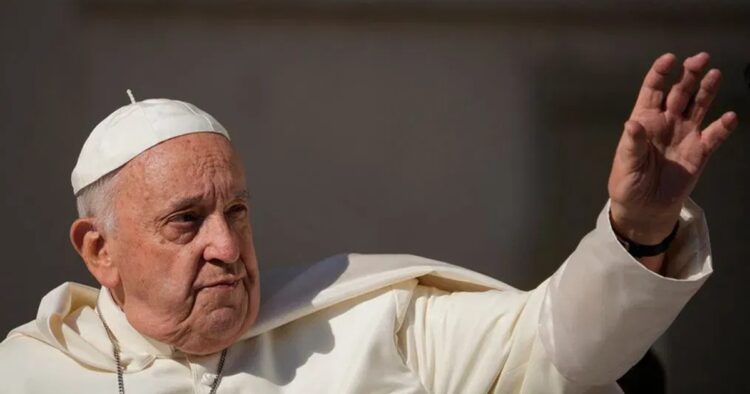Pope Francis, known for his progressive stance on global issues, is set to make history at the G7 summit by addressing leaders on the pressing topic of artificial intelligence (AI). This marks the first time a pope has been invited to speak at the annual gathering, underscoring the gravity of his concerns about the ethical development and use of AI technologies.
Pope Francis in his recent peace message, called for an international treaty to ensure that AI is deployed in a manner that upholds human values such as compassion and morality. He cautioned against unchecked AI development, highlighting its potential risks to global peace and societal stability.
Italian Premier Giorgia Meloni extended the invitation to Pope Francis, recognizing his influential moral authority and the potential impact of his advocacy on AI regulation. This move reflects a concerted effort to align moral imperatives with policy discussions on AI ethics and safeguards.
ALSO READ: “PM Modi Emphasizes Peaceful Resolution in Talks with Zelenskyy at G7 Summit”
Generative AI, exemplified by technologies like OpenAI’s ChatGPT, has garnered attention for its ability to create human-like responses. However, it has also raised significant concerns about safety, including the potential for bioweapons creation, dissemination of disinformation, and exacerbation of societal inequalities through algorithmic biases.
Francis has echoed these concerns, emphasizing the need for AI regulation that prioritizes human rights, peace, and the prevention of discrimination and misinformation. His advocacy resonates with ongoing efforts by global entities such as the European Union and Japan to establish comprehensive frameworks for AI governance.
Several countries, including Japan and the European Union, have taken proactive steps to regulate AI technologies. Japan launched the Hiroshima AI process to develop international principles for AI use, while the EU has enacted the AI Act aimed at safeguarding against AI risks across its member states.
In the United States, President Joe Biden has issued executive orders and called for legislative measures to enhance AI oversight. Individual states like California and Colorado are also exploring state-level regulations amidst concerns over monopolistic practices among major AI companies.
Pope Francis’ Role and Impact
Pope Francis’ address at the G7 summit is expected to galvanize global discussions on AI regulation and ethics. His moral authority and global influence provide a unique platform to advocate for stringent safeguards against the misuse of AI technologies.
By engaging with world leaders and policymakers, Francis seeks to ensure that AI development remains aligned with ethical principles and contributes positively to global peace and societal well-being. His participation underscores the urgency of addressing AI risks while harnessing its potential for responsible innovation.
As Francis prepares to meet with leaders from Ukraine, Algeria, Brazil, Bharat, Kenya, Turkey, and G7 members including President Biden and Prime Minister Trudeau, discussions are anticipated to extend beyond AI regulation to encompass broader geopolitical and humanitarian concerns.
With ongoing global dialogues and initiatives spearheaded by various nations and international organizations, the trajectory of AI governance is poised to evolve significantly. Pope Francis’ advocacy at the G7 summit serves as a pivotal moment in shaping the future of AI regulation and ethical standards on a global scale.

















Comments